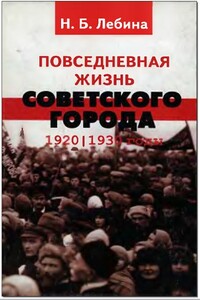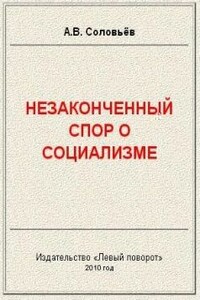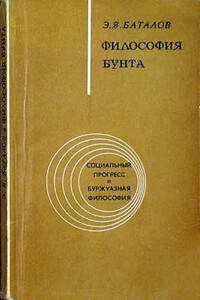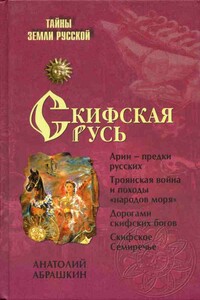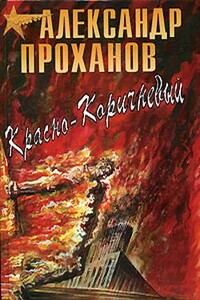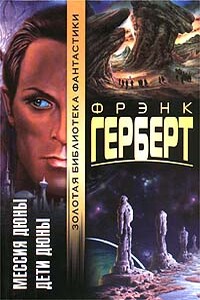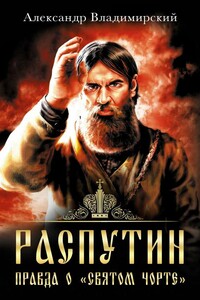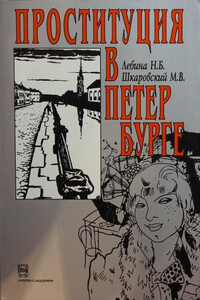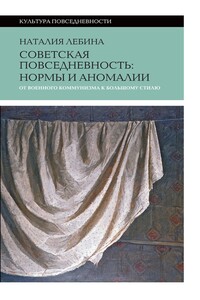In retrospect, the 20>th Century seems to many of us first of all an age of excesses and false solutions, of murderous delusions and hare-brained scheming. At the same time it was ал age of unseen — and unforeseen — scientific and technical progress and social restructuring. Looking back into this not too distant past, nobody's eye can avoid meeting the phenomenon of Soviet socialism, which looms large in the centre of the political history of the period. Now, as we are approaching the 21>st century, the Soviet Union exists no more and we may hope that the social system, which it had produced, never returns. This notwithstanding, the study of Soviet society remains very important. We must try to understand what happened in Russia during the long decades of Soviet power. We need this understanding not just in order to explain, why and how the communists took power and held it, although this is also a crucially important task. As scholars and as human beings we are also concerned about that reality, which was faced by the common man, the ordinary Soviet citizen, on whose body the immense social experiment was performed. During several past decades, scholars have been quarreling about the merits and setbacks of different models of explaining the Soviet society as a whole. The debate still continues and no final solutions are in sight. Anyway, our understanding of the Soviet society on all levels is rapidly improving. This is due to the unique quality and quantity of the files of source material, which the Soviet state (including the Communist party) collected and preserved. This material makes it possible not only to observe the networks and mechanisms of power and communication of this society. It also allows us to gain a deep insight into the realities of everyday life, such as it was faced on the grassroots level.
The study of Soviet everyday history has become popular during the past few years. Interestingly enough, it was started in different countries at the same time, independently of each other. In Russia the contribution of the St. Petersburg University of Economics and Finances has, perhaps, been most impressing so far. Teacher of this University, the author of this book, professor Natalia Lebina, has been active in this field of study for many years, as well as her colleague professor Boris A. Starkov and others. As regards the foreign specialists in this field — also partners of this scholarly group, — there is no denying of the pioneering role of American and generally Anglo-Saxon — historians. Especially active have been such scholars, who have generally been attached to to the so called «revisionist» or «non-totalitaria» school. Accidentally, questions concerning the realities of Soviet everyday life began also attract Finnish historians in the mid–90s. The research project «Norms, Values and Transition in Soviet Society during the 1920s–1950s» financed by the Finnish Academy of Sciences was lucky enough to have the opportunity of attracting into its team several outstanding Russian scholars, including professor Lebina, whose contribution to this project has now been published in this book.
The project thanks professor Lebina for many inspiring talks in its seminars, for meticulous criticism and good advice for colleagues, The theoretical solutions and practical results of each of the members of the project «Norms, Values and Transition in Soviet Society During the 1920s–1950s» remain strictly their own intellectual property. Anyway, on behalf of the project I want to express my gratefulness to professor Lebina for being able to consider this book as one of the fruits of our project.
My thanks are also due to Aleksanteri Institute / Kikimora Publications for accepting this volume into its Russian Studies series. In Helsinki the Ren vail Institute, which hosts our project has also been very helpful. The decisive role of the Finnish Academy for the whole project goes without saying.
St. Petersburg, May 19, 1999
Timo Vihavainen
Director of the Research Project «Norms, Values and Transition in Soviet Society During the 1920s—1950s»
В ретроспекции многим из нас 20-й век представляется прежде всего эпохой потрясений и ложных решений, убийственных заблуждений и опрометчивых интриг. В то же время это был век невиданного и никем не предполагавшегося технического и научного прогресса и социальных перемен. Вглядываясь в это не столь уж отдаленное от нас прошлое, мы не можем не обратить внимания на феномен советского социализма, занимающий огромное место в политической истории данного периода.
Сегодня, на пороге 21-го столетия. Советский Союз больше не существует, и мы надеемся, что социальная система, которую он произвел, никогда больше не вернется. Однако изучение советского общества остается очень актуальным. Мы должны попытаться понять, что произошло в России за многие десятилетия советской власти. Мы нуждаемся в осознании этого не только для объяснения, почему и как коммунисты взяли власть и удержали ее, хотя это тоже принципиально важный урок. С исследовательской и гуманистической позиций интересна та реальностью, с которой встречался «маленький человек», обычный советский горожанин, чья духовность и телесность также подверглись реформированию в этом гигантском социальном эксперименте.
